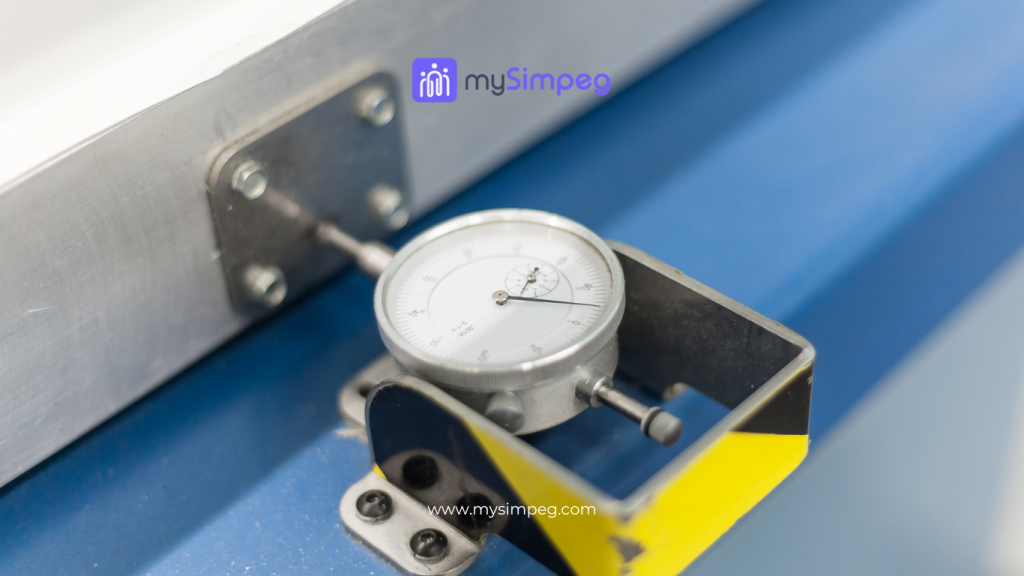Don't miss our holiday offer - 20% OFF!
Pressure sensors play a crucial role in various industrial applications. They measure the pressure of gases or liquids and convert it into a signal that can be analyzed. This article will explain the basic principles of how pressure sensors work and explore their applications across different industries.
Contents
Basic Principles of Pressure Sensors

Read More: Optimizing Security with Pressure Sensors: Technology for Leak Detection and Pressure Monitoring
1. What Are Pressure Sensors?
Pressure sensors measure the pressure of a medium and convert it into an electrical signal. Depending on the application, these sensors can detect relative, absolute, or differential pressure. Thus, they offer versatility in different settings.
2. How Do Pressure Sensors Work?
Pressure sensors generally consist of a sensing element made from piezoelectric materials, strain gauges, or capacitive technology. Let’s examine how each type operates:
- Piezoelectric Sensors: These sensors utilize piezoelectric materials that generate an electrical voltage when subjected to pressure. The voltage produced is then measured to determine the applied pressure.
- Strain Gauge Sensors: These sensors feature a measuring element connected to an elastic component. When pressure is applied, the elastic element deforms. Consequently, the strain gauge measures this deformation.
- Capacitive Sensors: These sensors include two plates that form a capacitor. When pressure is applied, the distance between the plates changes, which in turn alters the capacitance. The sensor then converts this change in capacitance into an electrical signal.
3. Calibration of Pressure Sensors
Calibration is essential for ensuring that pressure sensors provide accurate readings. This process involves adjusting the sensor with known pressure standards, which guarantees consistent and reliable results.
Applications of Pressure Sensors in Various Industries
1. Automotive Industry
In the automotive industry, pressure sensors monitor tire pressure, fuel systems, and hydraulic systems. By providing accurate data about system conditions, these sensors enhance vehicle safety and efficiency. Consequently, they contribute to overall vehicle performance.
2. Energy Industry
Pressure sensors are crucial in the energy sector for managing energy production processes. They monitor pressure in pipelines, reactors, and boilers. As a result, these sensors ensure safe and efficient operations, helping to prevent potential hazards.
3. Manufacturing Industry
In manufacturing, pressure sensors play a key role in monitoring and controlling pressure in machinery and equipment. This monitoring helps maintain product quality and prevents machine damage. Therefore, manufacturers can achieve better efficiency and reliability.
4. Medical Industry
In the medical field, pressure sensors are employed in various applications such as blood pressure monitoring, ventilators, and anesthesia equipment. These sensors ensure that patients receive safe and effective care. Moreover, they support better management of medical treatments.
5. Chemical Industry
In the chemical industry, pressure sensors are essential for monitoring pressure in chemical reactors and production processes. They help maintain chemical reactions within safe and efficient limits. This, in turn, optimizes the overall production process.
Advantages and Challenges of Using Pressure Sensors

Read More: The Role of Pressure Sensors in Modern Industry: From Automotive to Energy Management
1. Advantages
- High Accuracy: Pressure sensors deliver highly accurate pressure readings, which are vital for many industrial applications. Their precision supports effective decision-making and process control.
- Reliability: Designed to operate in extreme conditions, these sensors provide consistent data. Therefore, they enhance system reliability.
- Monitoring Capability: Pressure sensors enable real-time system monitoring. Consequently, they aid in the early detection of potential problems.
2. Challenges
- Calibration and Maintenance: Regular calibration and maintenance are necessary to ensure accuracy. While this can be demanding, it is crucial for sensor performance.
- Environmental Sensitivity: Some sensors may be affected by environmental conditions such as temperature and humidity. Consequently, choosing the right sensor for specific conditions is important.
Conclusion
Pressure sensors are invaluable tools across various industries, including automotive, medical, and chemical sectors. By understanding how pressure sensors work and their applications, we can leverage this technology to enhance efficiency, safety, and quality in modern systems. Despite challenges such as the need for calibration and maintenance, the benefits provided by pressure sensors make them essential components in numerous applications.





